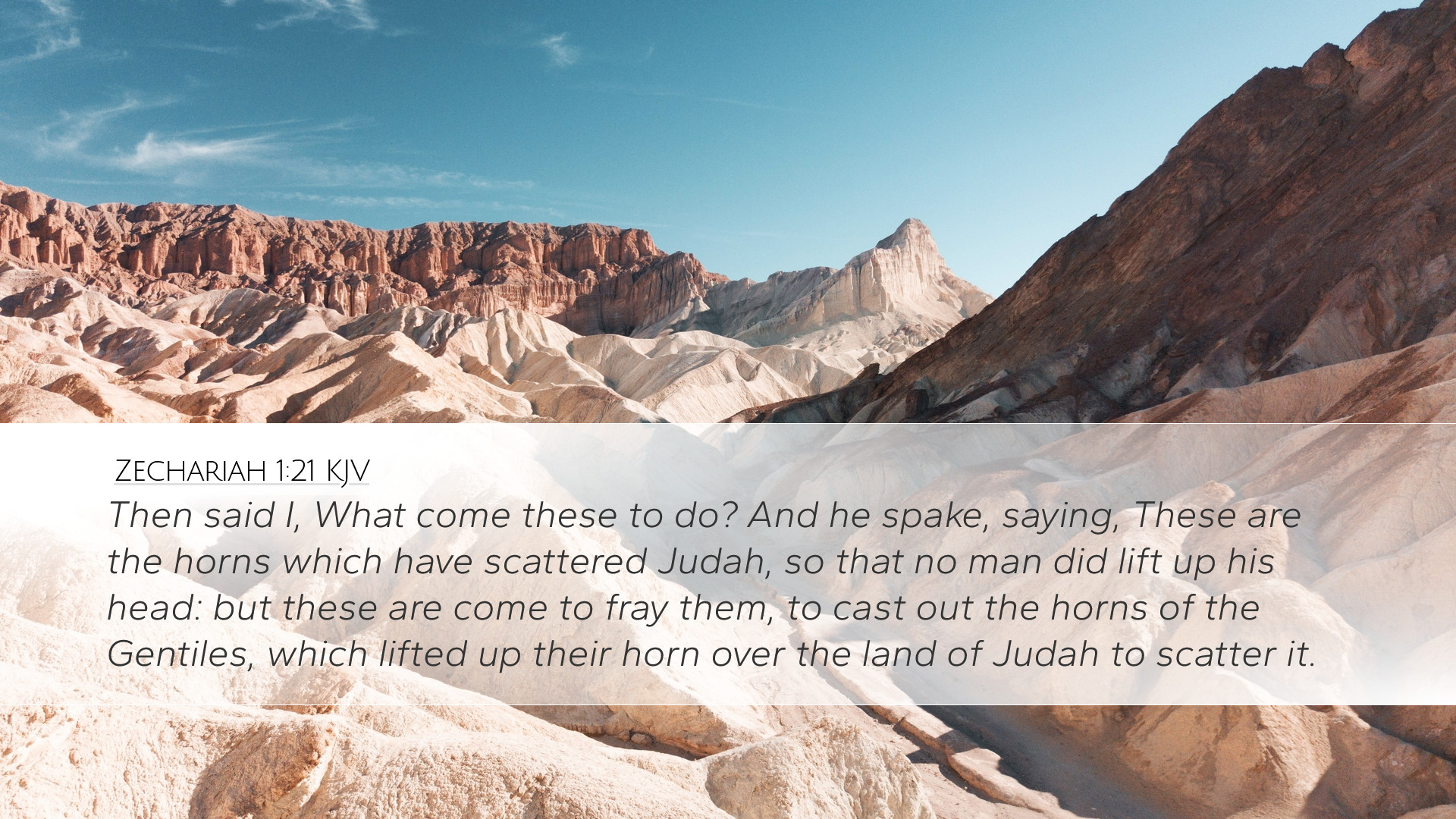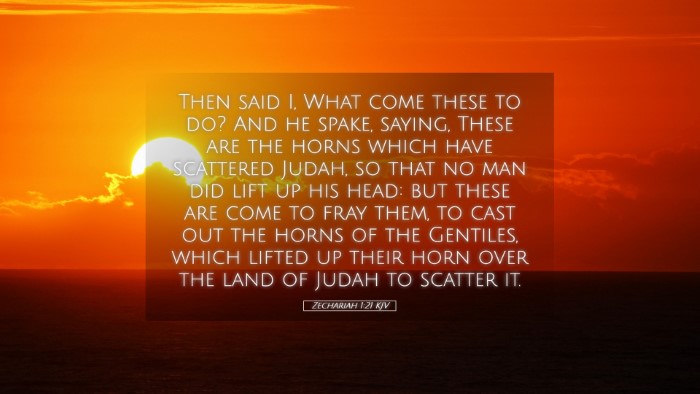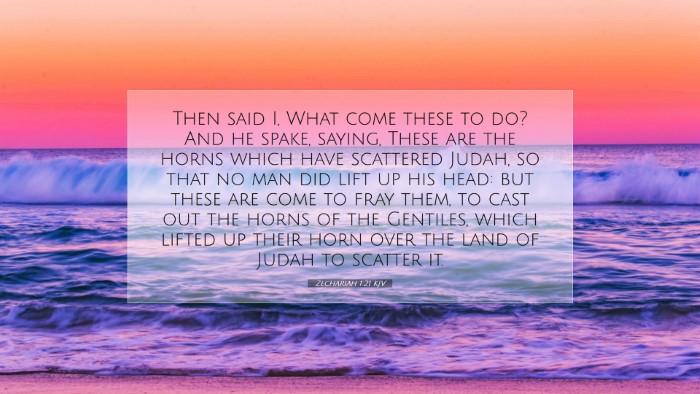Commentary on Zechariah 1:21
Zechariah 1:21 states: "Then said I, What come these to do? And he spake, saying, These are the horns which have scattered Judah; so that no man did lift up his head: but these are come to fray them, to cast out the horns of the Gentiles, which lifted up their horn over the land of Judah to scatter it."
Contextual Overview
This passage is situated in a prophetic vision experienced by Zechariah, a post-exilic prophet who sought to encourage the remnant of Israel returning from Babylon. After enduring a lengthy period of exile, the community was plagued by oppression and disheartenment. Zechariah's messages, both warnings and assurances, aimed to restore hope and motivate the people to resume the rebuilding of Jerusalem and the Temple.
Insights from Commentaries
Matthew Henry's Commentary
Understanding the Horns: Henry notes that the "horns" symbolize the power and strength of nations—particularly, the kingdoms that oppressed Judah. In biblical symbolism, horns represent strength and authority. Henry emphasizes that the four horns mentioned in the vision correlatively reflect the four major powers that had oppressed the people of Israel through history.
Divine Intervention: He elaborates on the idea of divine justice as God raises up instruments for judgment, and subsequently exercises His sovereignty to deliver His people. God's action of "fraying" the horns indicates His intervention to weaken the oppressive forces against Judah, signifying a turning point in their struggle.
Albert Barnes' Commentary
Interpretive Framework: Barnes focuses on the prophetic elements of this vision, noting its importance in depicting both the condition of the Israelite people and the assurance of God’s protection. He emphasizes that the Gentile nations that lifted up their "horn" sought not only to destroy Israel but also to instill fear and hopelessness among them.
Casting Out the Gentiles: Barnes interprets the phrase "to cast out the horns of the Gentiles" as a promise from God. He discusses the prophetic hope embedded in this statement—that God will act to dismantle the power that has caused distress to His people. This reflects the broader biblical theme of God’s ability to turn the tables on oppressors.
Adam Clarke's Commentary
Symbolism of Scattering: Clarke describes the "scattering" of Judah as a result of the oppression faced from foreign powers. He stresses that the lack of strength in the people—where "no man did lift up his head"—speaks to their despair and the dire state of their national identity during the exile. The imagery evokes a profound sense of loss and helplessness.
God's Restorative Actions: Clarke adds that God's sending of these craftsmen is in direct response to the horns. His interpretation frames this as a restoration not just of physical protection but also of spiritual renewal for the people of Judah. The response signifies that God’s plans for Israel’s identity and mission were still intact despite their suffering.
Theological Implications
Hope amidst Despair: This verse epitomizes a recurring biblical theme where God responds to oppression with hope and restoration. For pastors and theologians, this illustrates the pastoral duty to speak hope into the despairing situations of life, echoing God's promise of intervention.
The Role of Prophetic Ministry: The narrative also emphasizes the role of prophetic ministry in guiding God’s people. The prophet Zechariah, through his evocative imagery and symbolism, reminds scholars of the importance of prophetic utterances in renewing faith and encouraging action among congregations.
Practical Applications
- Encouragement in Leadership: Leaders can draw parallels between the struggles of Judah and contemporary issues faced by today’s church, notably the need for resilience amid external pressures.
- God's Sovereignty: The passage reinforces the belief that God remains sovereign over history and culture, serving as a reminder for believers to trust in His timing and plans.
- Community Building: Just as Zechariah aimed to inspire a sense of community among the remnant, today's church leaders have the responsibility to nurture unity and collaboration among believers for collective mission fulfillment.
Conclusion
Zechariah 1:21 serves as a profound reminder of God's faithfulness and sovereign power in the face of adversity. The insights from recognized commentaries shed light on the richness of the text, revealing layers of meaning about oppression, hope, and divine intervention. Pastors and theologians can draw inspiration from this passage to communicate the timeless message of God’s restorative love and powerful action in the lives of His people.


